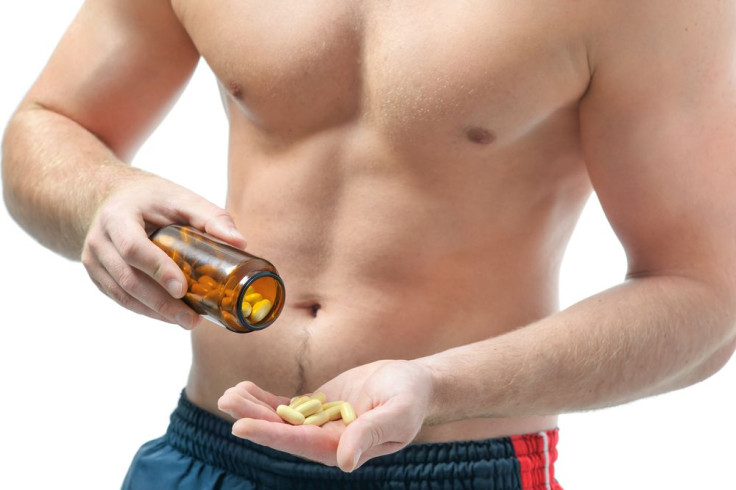6 Workout Supplements You Should (And Shouldn’t) Pack In Your Gym Bag

What you put into your body is just as important as how much or how often you exercise. Unfortunately, what you put into your body can also deter you from reaching your ultimate workout goal. When it comes to supplements, there’s the good, the bad, and the useless. Before considering which supplements are best for you, remember this: You do not NEED any workout supplement. All essential muscle-building and weight loss ingredients can be found at the grocery store. However, for people without a large appetite or an appetite for unhealthy food, certain workout supplements can make up for the vitamins and nutrients they are not getting from food. Let’s take a look at what supplements we should and shouldn’t use:
Do
1. Protein
Protein powders and bars are an easy and efficient way to get the protein your body needs to build muscle. According to the American Council on Exercise, protein is essential to our health because it is found in every cell in our body. Not only does it play a major role in our muscles, brain, nerves, hair, skin, and nails, but it also aids our body in fighting infection, providing energy, and staying full in between meals. Like I said before, our required protein for the day can be found in any grocery store, including grilled chicken breast (25 grams), ¾ cup of Greek yogurt (18 grams), or a half cup of soy beans (15 grams). Now for those of us with appetites that are not big enough to provide the Recommended Dietary Allowance (RDA) for protein — between 10 and 35 percent of our daily calories — the 20 grams of protein found in the average scoop of protein powder is the perfect substitute.
2. Fish Oil
Yes, if you do get enough “fatty fish,” such as salmon, tuna, and mackerel, in your diet than you do not need fish oil supplement. Now for people who don’t find the taste of fish to be all that appealing or can only stand to have it once a week, fish oil pills, which come from the tissue of those fatty fish, are just what they need. So what special ingredients do these fish oil supplements contain that make them so vital to a healthy diet? Two important omega-3 fatty acids, including eicosapentaenoic acid (EPA) and docosahexaenoic acid (DHA). Adding six grams of omega-3 fatty acid packed fish oil to our diet can help promote a health cholesterol levels by increasing HDL “good” cholesterol. They can also help us avoid osteoporosis by increasing bone density and calcium balance.
3. Creatine
Using creatine tends to be touchy subject for many workout enthusiasts. Some believe it serves no benefit towards overall muscle growth while others say any muscle growth is simply water weight. Despite what naysayers think about creatine, taken under the right conditions it really does work. In fact, creatine is found naturally in our bodies. Creatine supplements found on the shelf of your local vitamin store only increase how quickly the body produces energy. This increase in energy helps our bodies train harder, faster, and longer. This is also why creatine is generally recommended for people performing high-intensity workouts or activities involved explosive movements. This includes explosive strength training, high-intensity interval training (HIIT), and high-intensity sports (football, basketball, and sprinting). Taking creatine before a long walk or extreme channel surfing will only lead to water weight.
Don’t
1. Pre-Workout
Have you ever actually looked at the ingredient list on popular pre-workout supplements? Can you understand even half of what’s listed? Well that’s a clear sign that you probably shouldn’t be putting it into your body. The Food Drug Administration even issued a warning letter earlier this year regarding the popular pre-workout supplement Craze that contained a methamphetamine-like compound. While there are some pre-workout supplements on the market that can be considered both safe and effective, more often than not they are a combination of creatine and caffeine. Yes, the same caffeine you can find unadulterated in a cup of coffee. Since creatine and caffeine are both diuretics, taking too much of a pre-workout with both ingredients can easily lead to dehydration, kidney problems, and high blood pressure.
2. Testosterone Boosters
Many men turn to testosterone boosting supplements in an effort to improve their performance in the gym as well as in the bedroom. While a testosterone booster may seem like an easy way to increase the amount of a naturally occurring hormone in men (and in women), they also come with a bevy of side effects that most men didn’t bargain for. Common physical side effects related to testosterone boosters include acne, hair loss, prostate enlargement, kidney damage, and an iron deficiency in blood. Psychological side effects include aggression, mood swing, anxiety, and depression. Remember to consult your doctor before adding any supplements you do not understand to your diet, even if they are over-the-counter.
3. Multivitamins
While multivitamins have long been considered an essential supplement for an overall better quality of life, a series of recent studies have found that all they are is a waste of money. In an editorial published in the Annals of Internal Medicine, researchers gathered evidence from three studies assessing the potential benefit of multivitamins for overall health. Results found no beneficial aspect of multivitamin supplements for cardiovascular disease, cancer, or premature death. “We believe that the case is closed — supplementing the diet of well-nourished adults with (most) mineral or vitamin supplements has no clear benefit and might even be harmful,” the authors concluded. “These vitamins should not be used for chronic disease prevention. Enough is enough.”



























